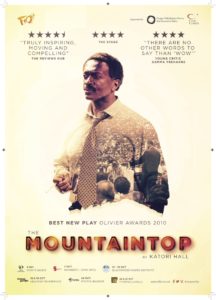The performance of The Island by Athol Fugard, John Kani and Winston Ntshona from Fio at Oasis Cardiff, a community centre for refugees and asylum seekers, was a beautiful way for anyone to get introduced to Fio.
It wasn’t a classic “theatre night”, but more a community evening that had a play at the end of it. There was food served originating from various different countries, the opportunity to have your photo taken and talk with other audience members and refugees from all over the world.
All this before Oasis World Choir, a choir of refugees, took to the stage to perform, inviting the audience to sing along. They performed a mix of pop songs and songs written by themselves. It was a real mix of cultures brought together by music and truly was a beautiful thing to witness. The general themes of the songs were about hope and unity.
As someone who grew up in a close-knit, music based community in West Ireland, it took me right back to that community feeling. But this was totally different, a group of people from all over the world, from various backgrounds.
Some of the music was brilliant. Some of it was a bunch of people having a sing-song, the choir and the audience which was fun. But there were some really beautiful individual performances from various members of the choir.
The Island from Fio
 (3 / 5)
(3 / 5)
The Island follows two black prisoners, John and Winston, who rehearse and perform a theatrical version of the Greek myth of Antigone during their time on Robben Island in Apartheid South Africa. Based on a true story, the two prisoners use this play as a way to speak about the current state of affairs of their country. It is a story of brotherhood, jealousy, oppression and protest with an important message of equality at its heart.
The play, originally performed in 1973, has its issues. There is a lot of character building, but a lack of character motivation at times. Whilst there are moments of real importance, the energy of the play stagnates too often. The restrictions of censorship in Apartheid South Africa when this play was written is a reasons for this. Only touching on certain issues that couldn’t be explicitly spoken about in detail. Whereas for a modern audience, in full knowledge of the realities of apartheid, it maybe doesn’t hold the power it did in 1973.
That aside, it tells an important story of struggle against the state. A story that is as relevant around the world today as it was in 1973. You could tell similar stories about the prisons in the USA, Brazil, North Korea, Thailand and even in post-Mandela South Africa. And despite the lack of detail and skirting around the harshest of realities, when this production does suck you in, it is hard not to feel it.
Because of the possibility of telling this story anywhere in the current world, you have to question Fio’s choice to cover this time period. Why this piece? Why now? What is it saying that is new? The answer to that last question is, nothing. We are not getting anything new. If anything, this is a watered-down version of what happened.
However, it is important to learn from history. And Fio were not making this piece of theatre to say anything new. They were making it to speak about the past of South Africa and how we, as the UK, move forward with commonwealth nations considering the past we share. Fio are clear to state the UK’s complicity in South Africa’s apartheid period.
I must mention that it does feel wrong to criticise a script written in a state of censorship. If you’re familiar with Iranian film, an industry full of censorship, you will know how much allegory is relied on to criticise the state and how often details are left to interpretation. The Apple (1998), written and directed by Samira Makhmalbaf, takes the real life story of two young women locked up by their father, and combines that with the symbolism of an apple, a symbol of opportunity, temptation and “the fall of man”, to speak about sexism in the country.
Is it the pinnacle of filmmaking? No. But you don’t get screened at Cannes for nothing. And The Island didn’t win Tony Awards for its technical playwrighting. But more for what it meant at that time.
Less about Fio’s choice to stage it though, Abdul Shayek’s direction fluctuates as the play progresses. The parts that stand out in the script are expressed well in this production. Most of the play is handled with care and directed to good effect. But there are areas that stagnate, times where the energy drops and moments that seem to lack importance.
The design was the strongest aspect of this production. The set was simple, yet effective. Four metal poles holding up a caged ceiling. This set was utilised well by the actors and combined with sound and lighting design, works well together, particularly in dream-like sequences, to produce emotive design. In a space like the Oasis, effectively a sports hall, this is not an easy feat and they deserve credit.
Performances from Joe Shire and Wela Mbusi are both strong. Portraying a brotherly relationship that shows real love, yet also jealousy. The moments of intimacy are beautiful, however some moments of conflict early in the play seem forced. The movement from the performers at times is really strong, which movement director Andile Sotiya deserves credit for.
The Island from Fio split my opinion a great deal and I still can’t decide, in my opinion, whether Fio made the right choice in staging it. Aspects were brilliant, but other parts fell flat. On one hand telling stories about history is important. But on the other hand, was this the right play to put in front a 2018 audience in Wales? Especially viewing it on this night, sharing a room with refugees, I couldn’t help but want to hear their stories more than one I have heard a thousand times. Stories that affect the present. But then, what is the present if we ignore history?
Overall though, the piece was an enjoyable piece of theatre, both from a general spectators perspective and from a critics perspective. Plenty to talk about afterwards both artistically and politically. Not to mention, the event as a whole was really beautiful and made for a heart-warming evening full of hope.
The Island by Athol Fugard, John Kani, and Winston Ntshona
Presented by Fio at Oasis Cardiff on November 9th 2018
Director: Abdul Shayek
Winston: Wela Mbusi
John: Joe Shire
Movement Director: Andile Sotiya
Lighting Design: Ryan Joseph Stafford
Sound Design: Dan Lawrence
Design Consultant: Becky Davies
Stage Manager: Jeremy Barnaby
Executive Producer: Shane Nickels
Producer: Nicole May
Assistant Stage Manager: Cait Gerry
Assistant Director: Yuqun Fan
Assistant Producer: Jasmine Okai
Community Engagement Officer: Naz Syed
Audio Description Consultant: Alastair Sil
Caption Consultant & Creator: Ben Tinniswood

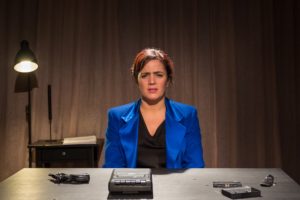
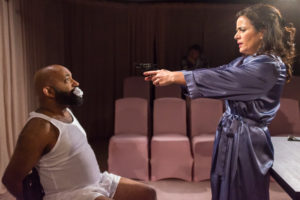


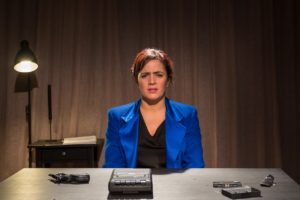
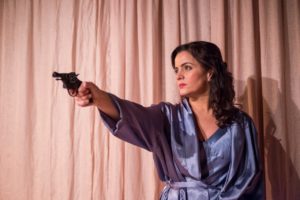
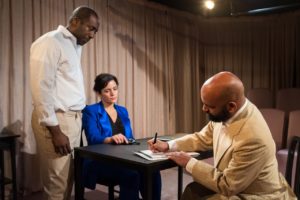

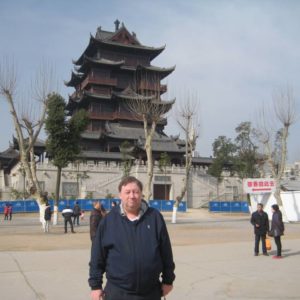
 (4 / 5)
(4 / 5)


